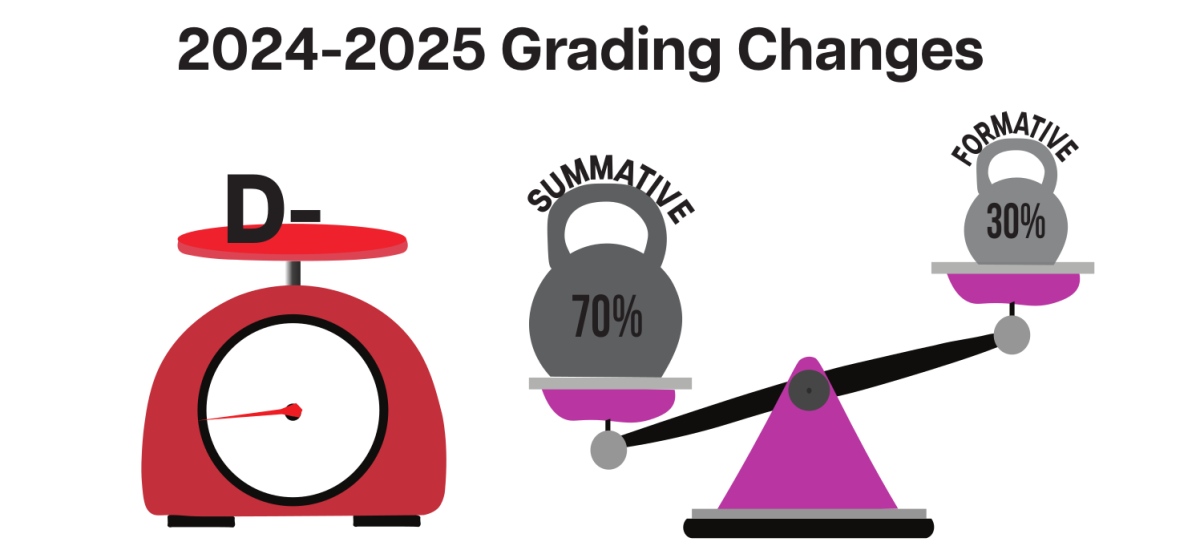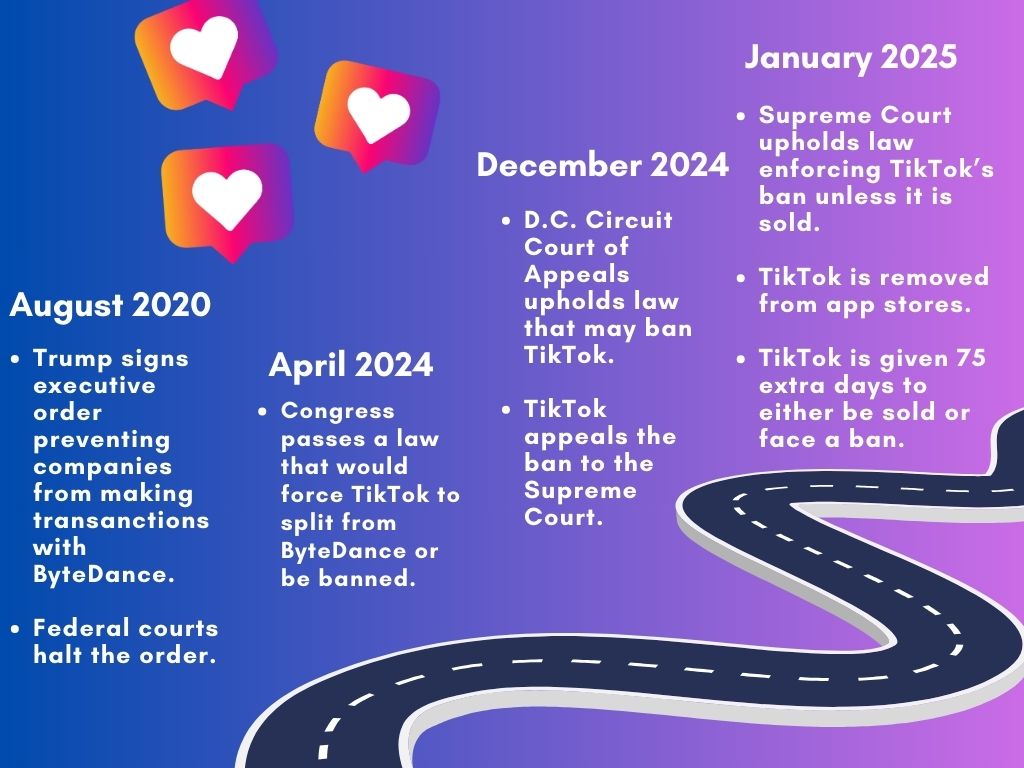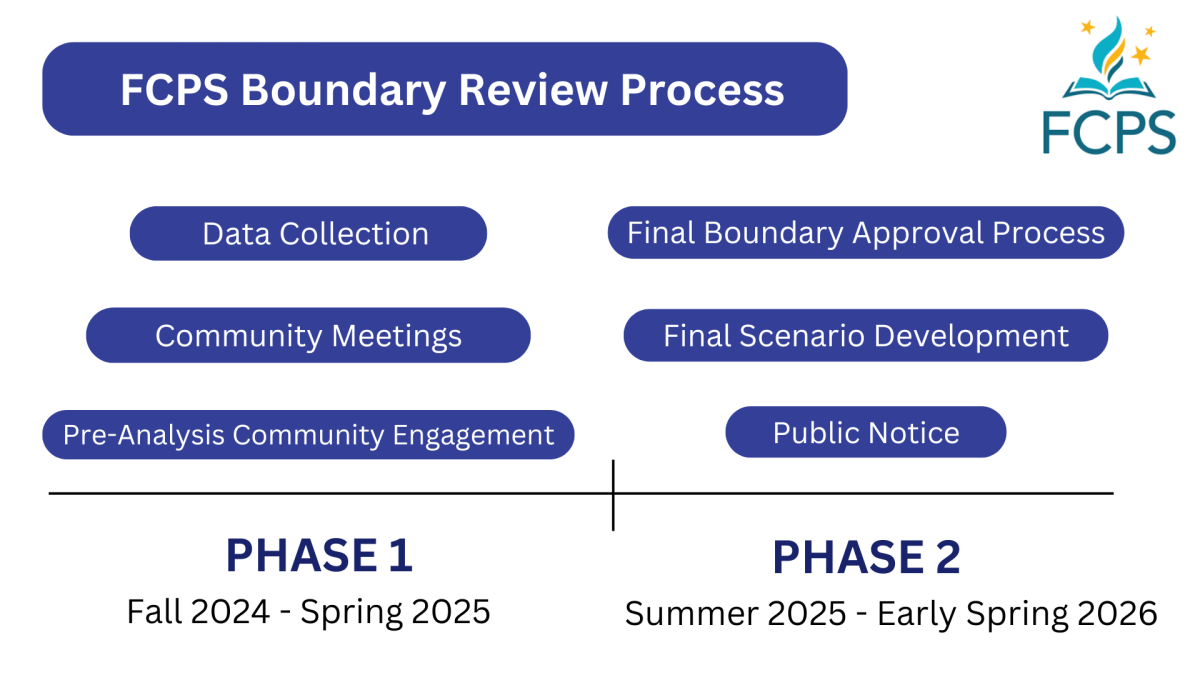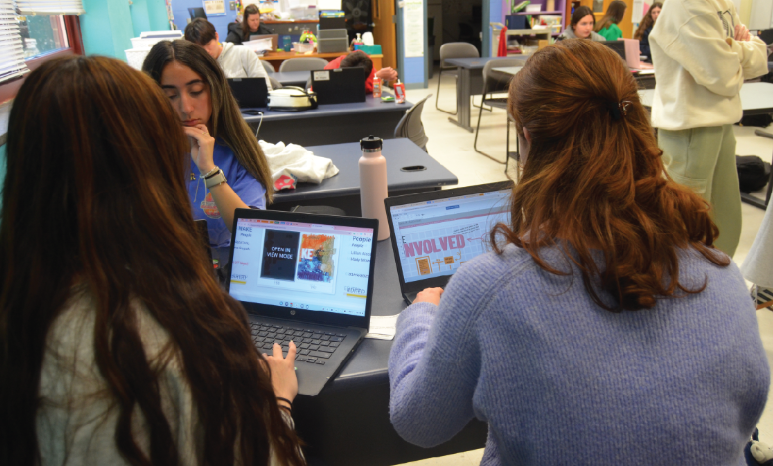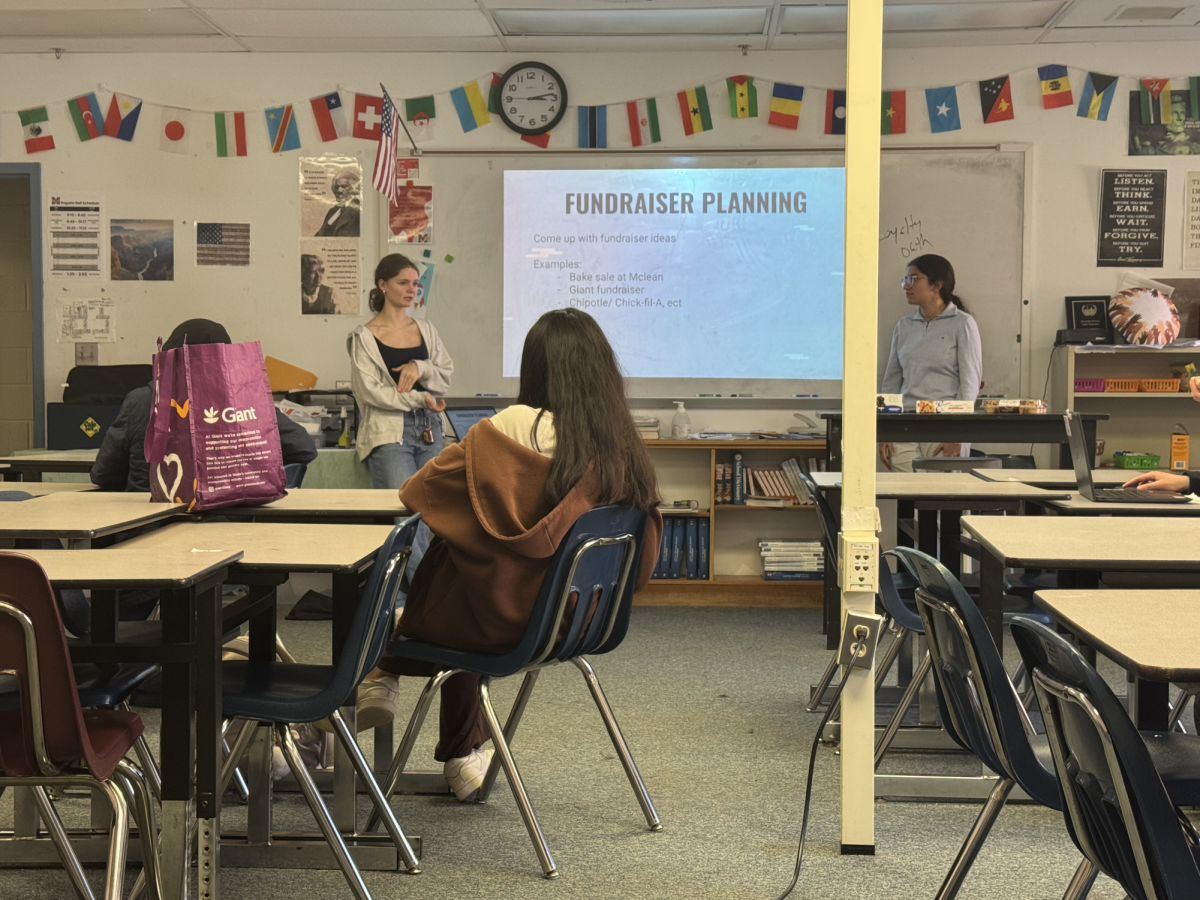In the 2022-2023 school year, FCPS set out to redefine how success is measured in its classrooms. The school division sought to reassess its grading policy, forming a committee to help guide any changes. Once the committee was formed, FCPS administrators started visiting schools and asking staff and students for input on the grading system.
That process culminated in the creation of the new grading policies introduced this year, which weigh formative grades as 30% and summative grades as 70% in all classes, with the simultaneous introduction of a D- grade and the opportunity for summative assessment retakes up to 100% instead of 80%. These decisions have generated mixed reactions among students and staff.
“A lot of pressure is on that summative category [now] because of that 70%,” Principal Ellen Reilly said. “[Something] that a lot of teachers are doing is if you correct your summative grade, then they will go back and [boost] your formative grade.”
FCPS’s grading policy committee was formed to reevaluate the policy as it had made significant changes since the pandemic and virtual school.
“Since the pandemic, we hadn’t reviewed our grading policies [and since then] a lot of things were different,” Chief Academic Officer Sloan Presidio said. “We wanted to make sure that we were as consistent as possible in our practices, so there were a number of things that we wanted to address.”
The committee was made up of subcommittees, with stakeholders such as teachers, students and parents who would come together in groups with different topics to cover regarding the grading policy.
“The reassessment policy was one of the big [topics], we looked at the gradebook type schools were using, we looked at category weighting in terms of how teachers were weighting formative and summative assignments,” Sloan said.
Some students are concerned about their test performances as it accounts for a greater percentage of their grade.
“If you flunk a test it will bring your whole grade down, even when you’re doing good with your assignments,” sophomore Cristina Cantero Hidalgo said.
Other students are pleased with the new policy, as they see the new retake policy as easing the testing process and increasing the chances of getting a higher score. “I don’t think [the new grading policy] is stressful,” sophomore Soraya Lohman said. “If you do [badly] on the test, you can just retake it up to 100%.”
Students are discovering various strategies to adjust to the new guidelines.
“Before, I knew that classwork would bring my grade up,” Hidalgo said. “Now that the tests are worth more of my grade, I know [to work harder] to make sure I maintain a good grade in the class.”
For courses that include project-based summative grades rather than traditional exams, the grade weighting is more of a struggle.
“I am not a fan of the 30-70 split, because it takes away any flexibility a teacher canhave,” said technology education teacher Libby Settlemyer, who was part of the FCPS grading committee. “Because I teach a more project-based class, I don’t expect my students to get on a summative-level until the end of the school year.”
FCPS has also proposed a new reassessment policy, which now permits students to retake up to a 100% score on a summative, as it is intended for students to get a second opportunity in learning the content.
“We really want [students] to treat that first assessment attempt as their best effort because we want students to do their best work, but you’re not [always] gonna get everything perfect on the first try,” Sloan said. “The purpose of the second attempt is to [allow] students [to] make sure they’ve mastered all of the information they need to know before moving on to the next unit.”
However, teachers worry about how the changes may affect students’ test-taking efforts.
“The chance [to retake up to 100%] is giving students the opportunity to not try as hard the first time, and in college you don’t have that option. It’s going to become a crutch,” English teacher Thecla Prentiss said. “But, for students that are struggling, it’s definitely beneficial.”
Teachers have to create different versions of a test to prevent cheating, and now they will have to create additional tests for retakes to allow students who earned above an 80% to further improve their score.
“What some teachers are concerned about is the student who gets a 94% the first time and wants to reassess to 100%,” Settlemyer said. “Some teachers are trying to discourage that because a 94% is a good grade.”
FCPS also added a D- to the grading scale. In the past, a grade below 64% would be classified as an F and 65-66% was a D. With the new policy, 60% and below is an F, 61-62% is classified as a D- and 63-66% is a D..
“An F has always been 64% since I’ve known it. But, [having a D-] will help students pass at the end of the school year,” Reilly said.
As a committee member, Settlemyer advocated for decreasing the number of assignments that were being given to students per quarter from a minimum of nine to seven. This reduction will help reduce the amount of extra grading created by the retake policy.
“We’re still practicing and trying to learn the material, so if we’re under pressure to have an assignment in the gradebook once a week, then there [should be] no room for mistakes,” Settlemyer said.
As FCPS implements these changes, the focus will be on ensuring fairness.
“The idea is, are we making sure that our students’ grades reflect their mastery of their content?” chemistry teacher Cat Gamboa said. “It’s the pursuit of equity.”


